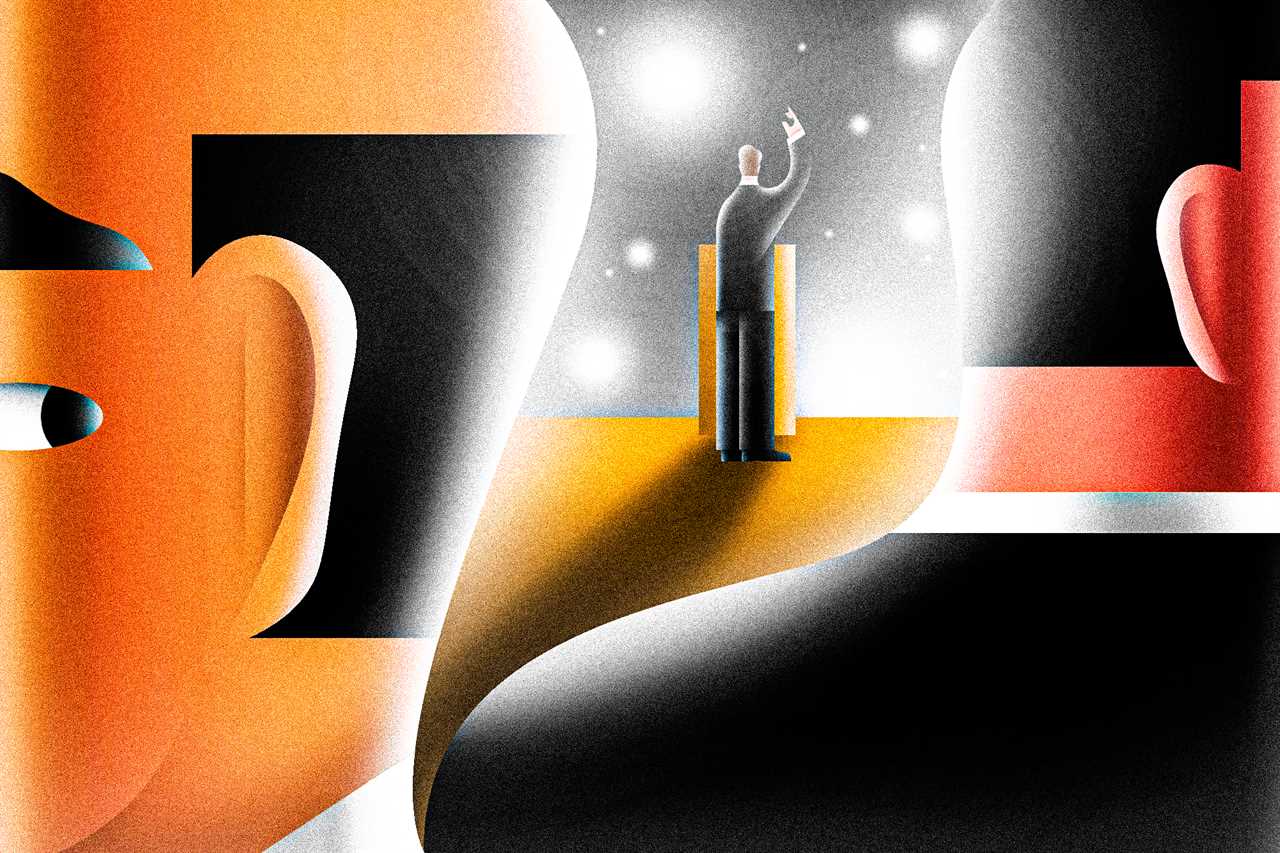
It was 3:15 on the morning of June 26, 1980, and Congressman Bob Livingston was extraordinarily drunk, hiding in the congressional gym beneath the Rayburn House Office Building, petrified that a team of highly trained right-wing homosexual assassins working on behalf of Ronald Reagan was about to kill him.
To the extent that the Louisiana Republican is remembered today, it’s for the brief but sensational role he played in America’s most infamous political sex scandal. On the same day in December 1998 that Bill Clinton was impeached for lying about his affair with a White House intern, Livingston, then the House speaker-designate, shocked the nation with his own admission of adultery. Preempting a journalistic exposé that had dredged up evidence of his past relationships with women not his wife, he not only refused the speakership but announced his resignation from Congress altogether.
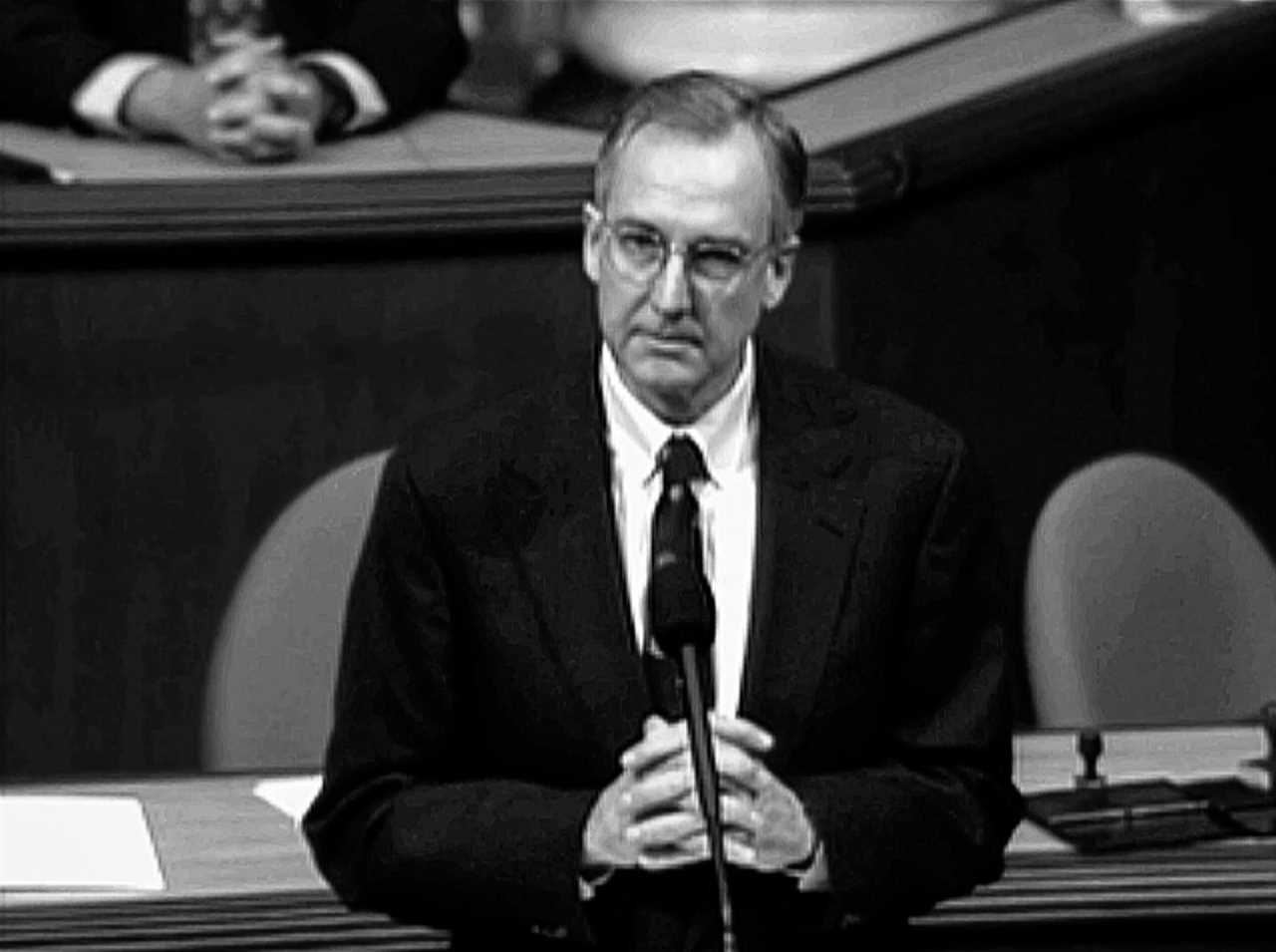
What people don’t know is that nearly two decades before this bit part in the Clinton impeachment drama riveted the nation, Livingston was at the center of another scandal involving politicians and illicit sex, one that, in his own words, had the potential to be “world-shaking.” Most explosive about this whole terrible intrigue, and what tied it all together, was the nature of the sexual activity involved.
For most of the 20th century, the worst thing one could possibly be in American politics was gay. The mere insinuation of homosexuality was sufficient to destroy a political career, and things could get particularly vicious between intraparty adversaries. The first outing in American politics, of the isolationist Massachusetts Sen. David Walsh in 1942, was perpetrated by interventionist allies of fellow Democrat, President Franklin D. Roosevelt. While public attitudes have become far more open, the insinuation that someone is gay — whether true or not — remains a potent weapon (as elements of the campaign against North Carolina Republican Rep. Madison Cawthorn recently illustrated), especially in socially conservative milieus.
This account of the alleged “homosexual ring” that controlled Ronald Reagan, and the efforts to expose it on the eve of the 1980 Republican National Convention that nominated him for the presidency, is compiled from interviews with several of the surviving participants and documents uncovered in the papers of former Washington Post Executive Editor Ben Bradlee. Appropriately for a story involving what was once considered the gravest sin in American politics, it has never been told until now.

The series of events that led Livingston to take refuge in the warrens of a Capitol Hill basement began innocently enough.
Shortly before closing his office on the evening of June 25, Livingston’s secretary received a phone call from L. Francis Bouchey, executive vice president of a small conservative foreign policy think tank called the Council for Inter-American Security. Bouchey’s wife was out of town, and he was home alone facing the unsavory prospect of a TV dinner. Was Livingston free for supper? As luck would have it, Livingston’s secretary said, the congressman’s wife was also away, and his evening was open. Bouchey and Livingston would meet at 7:30 at The Palm near Dupont Circle.
Bouchey drove into the city from his home in Annandale, the pleasant suburban community where Livingston also happened to live with his family. The men had several other things in common. Both were 37 years old, brothers of the Delta Kappa Epsilon fraternity and committed conservatives. One of Bouchey’s responsibilities was to enlist up-and-coming legislators in the cause of rolling back communism across Latin America, a crusade that was beginning to assume great significance at the dawn of the 1980s. As the congressman representing the Port of New Orleans, Livingston had every reason to worry about this threat, and when Bouchey offered him a seat on the council’s advisory board, he was happy to accept.
But over dinner, three weeks before he and his fellow Republicans were to gather at the Joe Louis Arena in Detroit for their national convention, Livingston had something more urgent on his mind than the twilight struggle between capitalism and communism. For months, speculation had been mounting as to whom Reagan would choose as his running mate. The former governor of California needed a veep candidate who could heal the widening divide within the GOP between its moderate establishment and conservatives like himself. Some of the top contenders were former CIA Director George H. W. Bush, who had recently bowed out of the race for president, and former President Gerald Ford. But it was the serious consideration of a fellow House colleague — Rep. Jack Kemp — that most piqued Livingston’s interest. Bouchey’s group was informally advising the Reagan campaign on Latin American issues. Perhaps Bouchey had a window into its deliberations.
“Do you know anything about Kemp, is he AC/DC?” Livingston asked, referencing not the Australian hard rock band but the slang expression for bisexual.
“Yeah, I heard some things,” Bouchey replied. “That stuff’s been around.”
“That stuff,” or what Kemp adviser Jude Wanniski termed “the homosexual thing,” had dogged the upstate New York congressman and former professional football player since the fall of 1967, when the syndicated newspaper columnists Drew Pearson and Jack Anderson published a piece linking Kemp to a “homosexual ring” operating within Reagan’s gubernatorial office. Kemp, then the starting quarterback for the Buffalo Bills and an aspiring policy wonk, had spent the summer offseason working for Reagan as perhaps the most famous intern in America. According to the muckraking duo, Reagan’s security chief had obtained “a tape recording of a sex orgy” held at a Lake Tahoe cabin leased by two Reagan staffers, and while Pearson and Anderson didn’t name any names, in the case of Kemp, they didn’t have to. One of the eight men involved, they wrote, was an “athletic adviser on youth activities who has since gone on leave for the fall athletic season.”
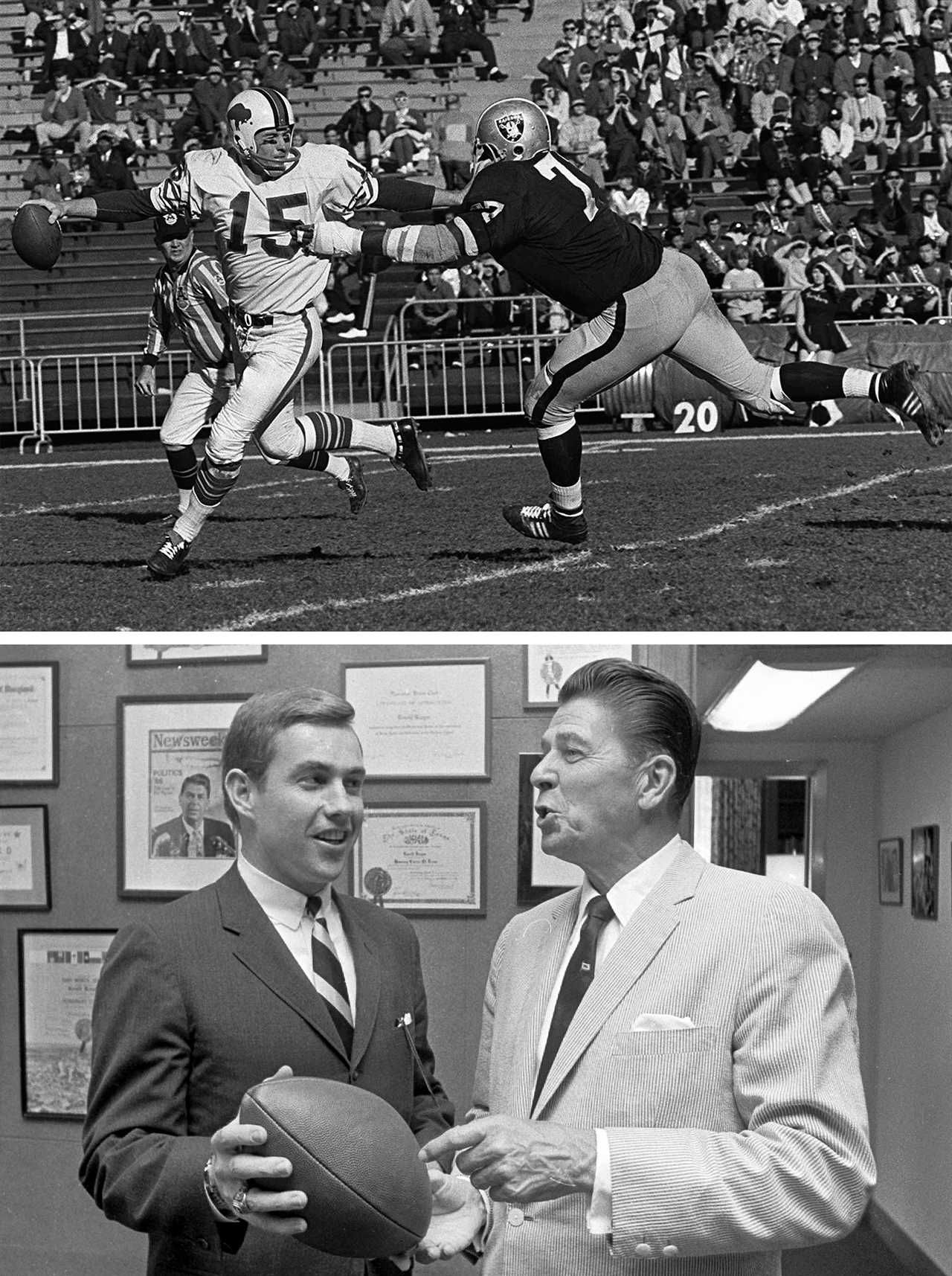
Murmurings about the handsome young athlete spread from the political watering holes of Sacramento to the locker rooms of the American Football League, following him all the way to Capitol Hill, where Kemp, who died in 2009, began a meteoric rise after winning a seat in Congress in 1970. In 1978, during the congressional midterm elections, senior Jimmy Carter aide Hamilton Jordan told a reporter to disregard Kemp as a serious presidential contender because he was a “queer,” and the chair of the Democratic National Committee advised another journalist that a Kemp-sponsored tax bill had no chance of passing for the same reason. “There is absolutely not a shred of evidence,” a fed-up Kemp complained. “There is nothing, and there was nothing.” The “slander” and “old calumny” that the virile ex-football pro and father of four might be gay, journalists Rowland Evans and Robert Novak wrote at the time, was a “vicious canard,” the sort of “poisonous” “garbage” one found “submerged in the political sewers” and other “gutter communications” that “not only do gross injustice to their victims but also demean and pollute democratic government.”
All this was on Livingston’s mind because of what he had heard the previous month at a secret meeting with members of the Republican “Wednesday Group,” a club of liberal to moderate GOP congressmen who gathered weekly to talk shop and plot strategy over pretzels and booze. Livingston was not a member of the group. But he had been roped into an impromptu discussion in California Rep. Pete McCloskey’s office by a colleague. Behind those closed doors, McCloskey suggested strongly that the possibility of Kemp as a running mate was proof that the “homosexual ring” around Reagan, long dismissed as rumor, might be something all too real.

While Livingston was concerned about the potential political liability for his party’s impending nominee, McCloskey was worried that Reagan himself represented a danger to the Republican Party and the country.
In recent weeks, McCloskey explained to the other congressmen huddled in his office, he had been in contact with a local television news reporter named Bill Best who used to work in the Bay Area and had been active in California GOP politics during the late 1960s. The last time McCloskey had heard from Best was in early 1976, a few months after Reagan announced his decision to challenge President Gerald Ford in the Republican primary. Best agitatedly told him that senior Reagan advisers had sexually propositioned him on two separate occasions. McCloskey did not hear from Best again until four years later, in the spring of 1980, when Reagan was on the verge of clinching the nomination. Best began calling him frantically to report that “homosexual people were very close to Reagan’s campaign leadership,” that they were “running” Reagan’s campaign, and that “the situation is absolutely out of control.” It was not until a boozy lunch with a man claiming to have been a “long time Reagan associate,” however, that Best found what he believed to be the “smoking gun” proving that Reagan was controlled by homosexuals. “Bill, you don’t understand the problem,” the man told Best. “I once engaged in a homosexual act with Reagan.”
As for Kemp, McCloskey had never known what to make of the rumors surrounding his colleague. “The big joke on Capitol Hill,” he told me in an interview at his home outside Sacramento in 2019, “was that the most dangerous position in pro football is to be Jack Kemp’s center.” After hearing from Best, McCloskey agreed that a Kemp nomination would revive the 1967 “Scandal in Sacramento,” possibly leading to revelations about the other homosexuals in Reagan’s orbit and thereby imperiling the GOP ticket.
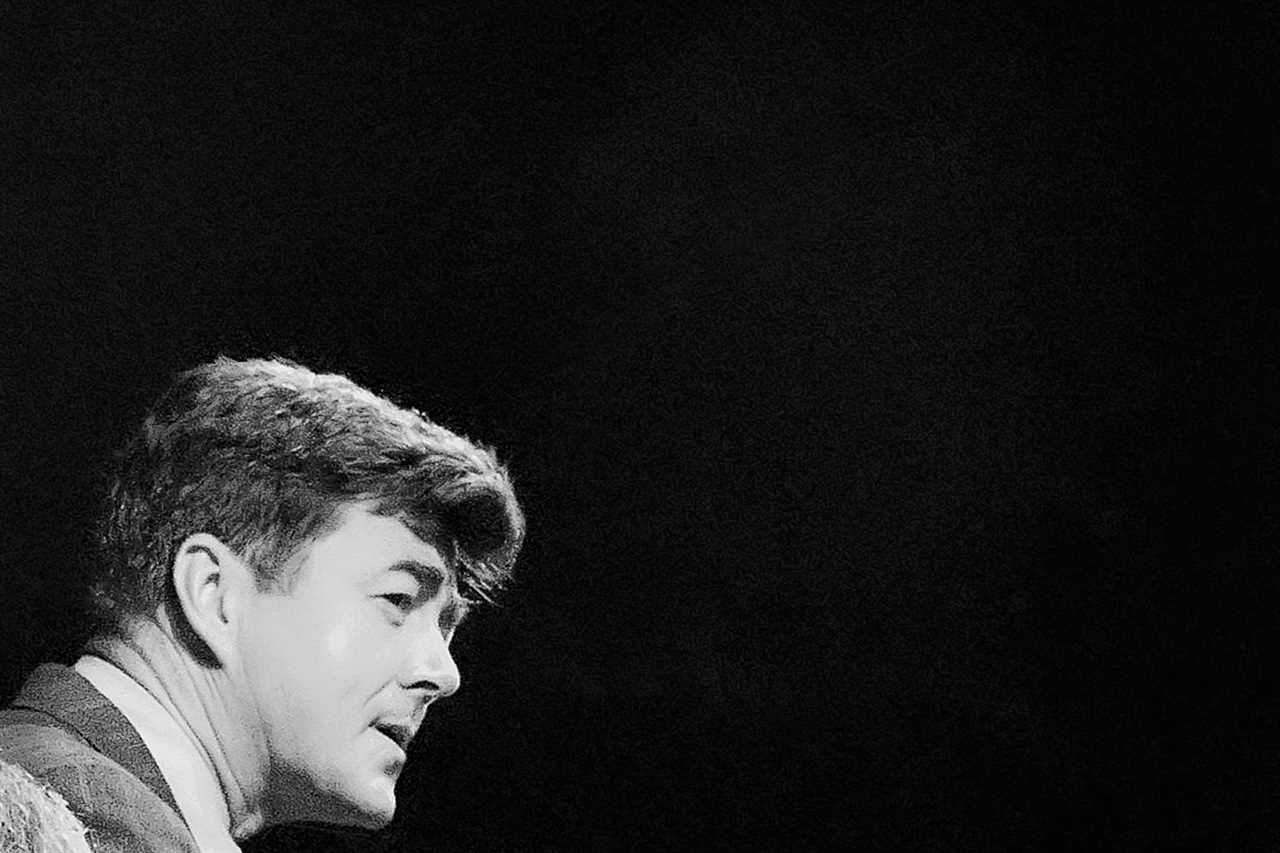
As far as homosexuality itself was concerned, McCloskey was more progressive than the vast majority of his colleagues. As a lawyer in Palo Alto in the 1960s, he had represented men arrested for homosexual solicitation, and when New York Rep. Bella Abzug introduced the first bill in Congress prohibiting discrimination against gay people, he was its only Republican sponsor. “I am heterosexual, I think,” the quirky congressman told The Advocate, a gay magazine, in 1977. “I wonder sometimes.”
In the present situation, however, McCloskey’s personal attitudes were beside the point. An Eisenhower-era executive order barring gay people from holding federal government jobs (on the grounds that they were supposedly more susceptible to blackmail) had led to a purge of thousands of workers, and while the civil service lifted its ban in 1975, gays were still prohibited from holding security clearances (a restriction that would not be lifted until 1995). “There is nothing inherently wrong with [homosexuality],” McCloskey was later to write, with a caveat, “in any office which does not have national security responsibilities.” And since the alleged homosexuals in Reagan’s orbit were all closeted, they were presumably vulnerable to inducement by foreign powers.
McCloskey, a dovish veteran of the Korean War with a jawline so sharp his staff nicknamed him “Mount Rushmore” had a tortured relationship with his party in general, and with the darling of its conservative faction in particular. McCloskey was first elected to Congress in 1967 after defeating the former child movie star, and Reagan’s friend, Shirley Temple Black in an open primary. The following year, Reagan declared that McCloskey’s refusal to endorse their party’s archconservative Senate nominee amounted to a violation of the GOP’s “Eleventh Commandment” — “Thou shalt not speak ill of any Republican” — as articulated by the state party chair. “Maybe a young congressman has a little more to learn about party loyalty,” Reagan cracked. Both McCloskey and Reagan would go on to challenge incumbent Republican presidents, McCloskey taking on Richard Nixon from the left in 1972 and Reagan seeking to dethrone Gerald Ford from the right four years later, and so strikingly did they represent their respective ideological flanks that Lou Cannon, the dean of California political reporters, described them as “the two most charismatic contenders for the soul of California’s Republican party.”
As Reagan progressed toward the presidency, this battle between the liberal and conservative factions of the California GOP was projected onto the national political stage. And at every step of Reagan’s inexorable rise, McCloskey was there trying to stop him. In 1976, “scared to death that Ronald Reagan was going to be the next president,” McCloskey recruited fellow liberal Republicans to support Ford. At the beginning of the next election cycle, despite his preference for moderates like Tennessee Sen. Howard Baker and Rep. John Anderson of Illinois, McCloskey supported Bush. “It is absolutely essential to stop Ronald Reagan from getting the Republican nomination,” he declared, “and George Bush is the only candidate who can do that.” Alas, Bush couldn’t do it, and was now vying to be Reagan’s running mate. With Reagan’s nomination all but sealed, the recalcitrant ex-marine would wage one final, desperate battle for the soul of his party.

Over dinner at The Palm, some five weeks after the exchange in McCloskey’s office, Livingston apparently could not get the salacious stories involving Kemp and the homosexual Reagan aides out of his mind. As he sipped white wine and Bouchey downed martinis, the subject of Kemp’s sexuality “dominated” their conversation, as Bouchey, who died in 2017, was to remember according to notes of an unpublished interview with a reporter. He found Livingston’s “preoccupation” with whether “a colleague of his was a switch-hitter” to be curious. “He was very interested in him,” Bouchey recalled. “The whole subject was raised by him. It was certainly not raised by me.” At one point, however, Bouchey might have volunteered the possibility that Kemp and Reagan himself had both engaged in gay sex.
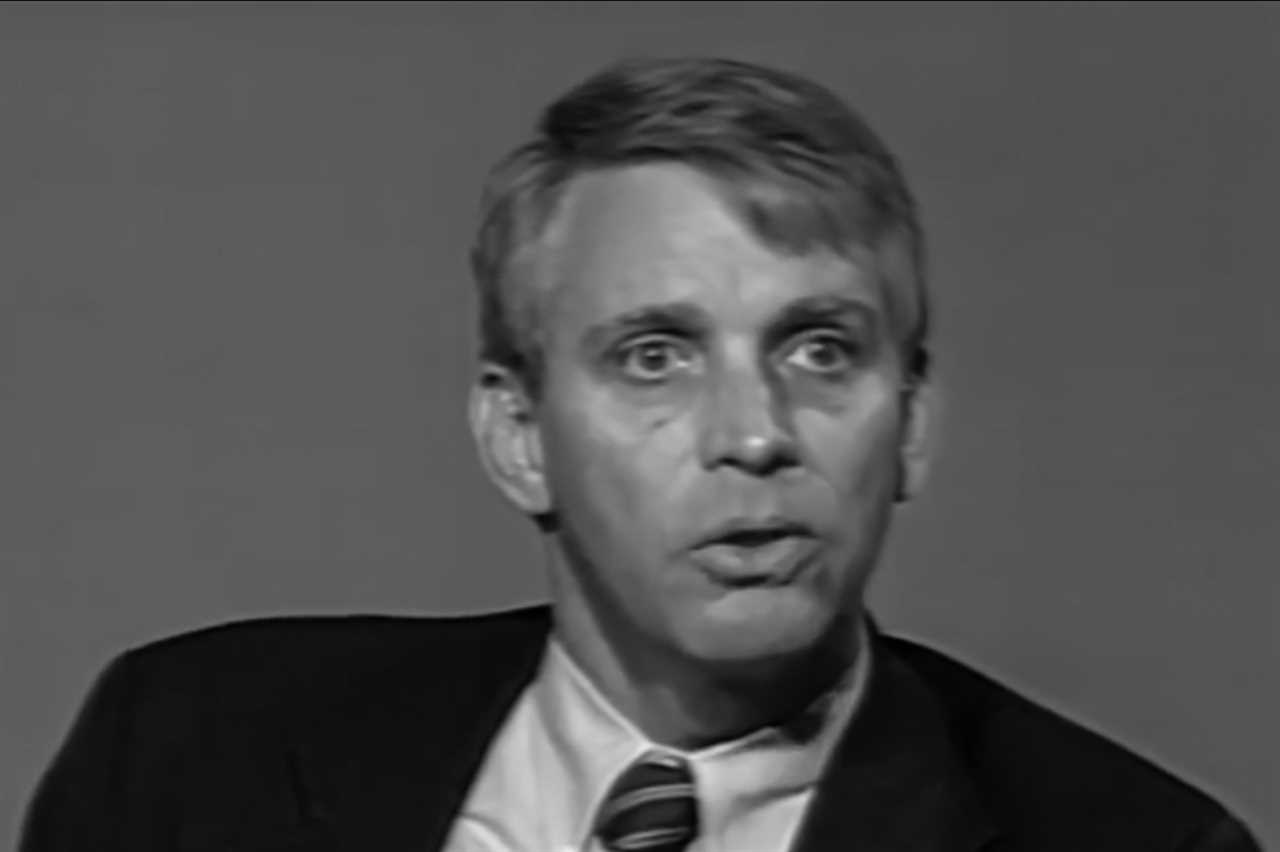
Following the meal, Livingston suggested a nightcap in Georgetown. The two hopped into Livingston’s Mustang and drove to F. Scott’s, a Georgetown haunt. After a drink there, they went next door to another watering hole, the Tombs. Last round was called, and Livingston offered to give Bouchey a ride back to Capitol Hill, where Bouchey had parked his car. By this point, Bouchey remembered, both men were deep “in the cup,” and he replied that he was “in no shape” to drive himself home. Livingston offered to take them both back to Annandale. Collapsing into the Mustang, the men paused for a moment, and Livingston inserted his key in the ignition. Before he could start the car, Bouchey placed his hand firmly on Livingston’s knee and asked, “Are you trying to get something started with me?”
Bouchey would later insist he had intended nothing sexual by the gesture or the remark. “I guess I was drunker than he was,” he conceded. A sexual proposition, an inebriated lark or something in between — it was one man’s hand placed upon another man’s knee that set off a chain of events with the potential to rattle the Reagan campaign, upset the presidential race and change the course of history.
Livingston panicked. “Oh, hell no,” he said, jerking his knee in rebuff. He quickly started the car, and an awkward silence descended over both men. Livingston’s mind began to process the jumble of things he had seen and heard over the past few weeks: the long-standing rumors about Kemp; the supposed gay network encircling Reagan; McCloskey’s contact who claimed that he, too, had been hit on by gay Reaganites; Bouchey’s ties to various Latin American juntas and paramilitaries. Three months earlier, a tragedy involving politics, murder and homosexuality had occurred when former New York Rep. Allard Lowenstein was shot to death in his Manhattan law office by a man rumored to have been a love interest. None of it added up to anything good.
When Livingston reached Bouchey’s home in Annandale, he stopped the Mustang, unceremoniously dumped his inebriated passenger off at the curb and sped away.
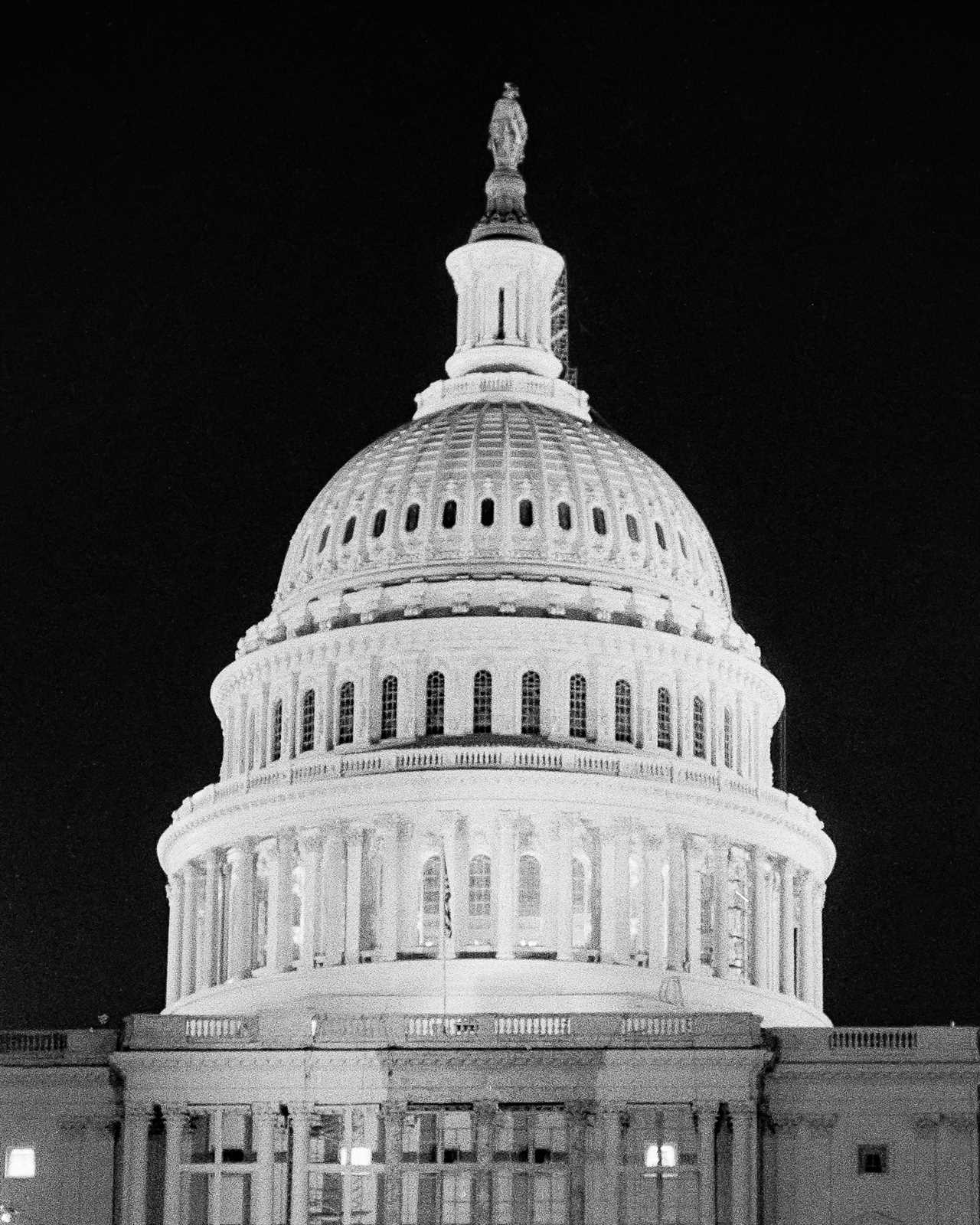
Though he lived in the same town, Livingston was afraid to return home. He hightailed it back to Washington, to the safest place to which he had access: the dank subterranean chamber of the House members’ gym. “When I was 15, someone tried to make a pass at me,” Livingston recalled to me in a 2019 interview about these events. “It was the first and last time” he was so approached until that moment during the summer of 1980. Using a phone in the locker room, Livingston rang the Capitol Police and asked to be put through to McCloskey.
“You were absolutely right,” Livingston gasped, according to a summary of their conversation later recorded by McCloskey.
“I just had a terrible experience.” Livingston proceeded to explain how he had just spent the night drinking with a friend and fraternity brother who “runs a security agency which furnishes support, training and weapons for Latin American governments.” This person had in the past mentioned “hits” across Latin America, and the previous October, a full week before the El Salvadoran military staged a coup, he predicted with chilling accuracy “precisely what was going to happen and who would be involved.” He “has the capacity to ‘hit’ people both in Latin America and here” in the United States, and he “indicated to me during the evening that Kemp was certainly a participant in homosexual conduct and that he thought it possible Reagan was also.” After making clear that he “saw nothing wrong with men enjoying each other’s company sexually,” this man “made a pass at me on three different occasions” over the course of the evening. Livingston was calling McCloskey from the House gym, he explained, because he feared he might be “met by a shotgun blast at the door” of his home for having rejected the man’s sexual advances.
Signaling disinterest in the “AC/DC” lifestyle, apparently, constituted more than just a personal affront to an intoxicated frat brother. Apprised of a clandestine homosexual cabal reaching all the way from Washington to Sacramento, and from San Salvador to Santiago, Livingston had balked at its initiation rites and thus put himself in grave danger. “When he becomes sober and realizes what he has said to me, and that I refused him,” Livingston said, according to McCloskey’s memo, “I think he is fully capable of violence.”
“You were right,” Livingston kept repeating. “There is a network.”

McCloskey told his worried colleague that he could sleep on his couch. But Livingston preferred to stay put. They agreed to meet first thing the next day, after the Republican caucus breakfast.
That morning, McCloskey recalled, Livingston was “white as a sheet.” Once the meeting ended, the two legislators marched to Livingston’s office in the Cannon Building, where Livingston showed McCloskey the wallet and business card Bouchey had mistakenly left in his Mustang the previous night. McCloskey told Livingston “it was imperative that Bouchey know that others besides him know” what had transpired between them, and that Livingston’s secretary should therefore call Bouchey to inform him that the congressman had his wallet, which he should feel free to pick up anytime. And then, as McCloskey returned to his own office, a lightbulb went off in his head.
When Bill Best first told McCloskey back in 1976 about the homosexual advances made to him by the two Reagan aides, he had given McCloskey and four other people sealed envelopes containing a statement about one of those encounters. Best told his confidants not to open the letters unless something happened to him, and to destroy them if Ford won the GOP nomination, which he eventually did. McCloskey, however, held on to Best’s note, storing it in the safe in the tiny lavatory adjoining his personal office.
McCloskey asked his legislative assistant to retrieve the sealed envelope. Written across the flap was Best’s signature and, below it, the words: “To be opened only by Pete McCloskey.”
Inside was a one-page statement, dated January 9, 1976, which read, in part:
Over the course of the following week, McCloskey typed up everything he knew about the intrigues concerning the presumptive Republican presidential nominee — the 1967 “homosexual ring” scandal in Sacramento, the repeated sexual importuning of Bill Best by various Reagan aides, Bob Livingston’s dramatic escape from a dread homosexual hit squad — into a two-part, 13-page, 33-point confidential memorandum.
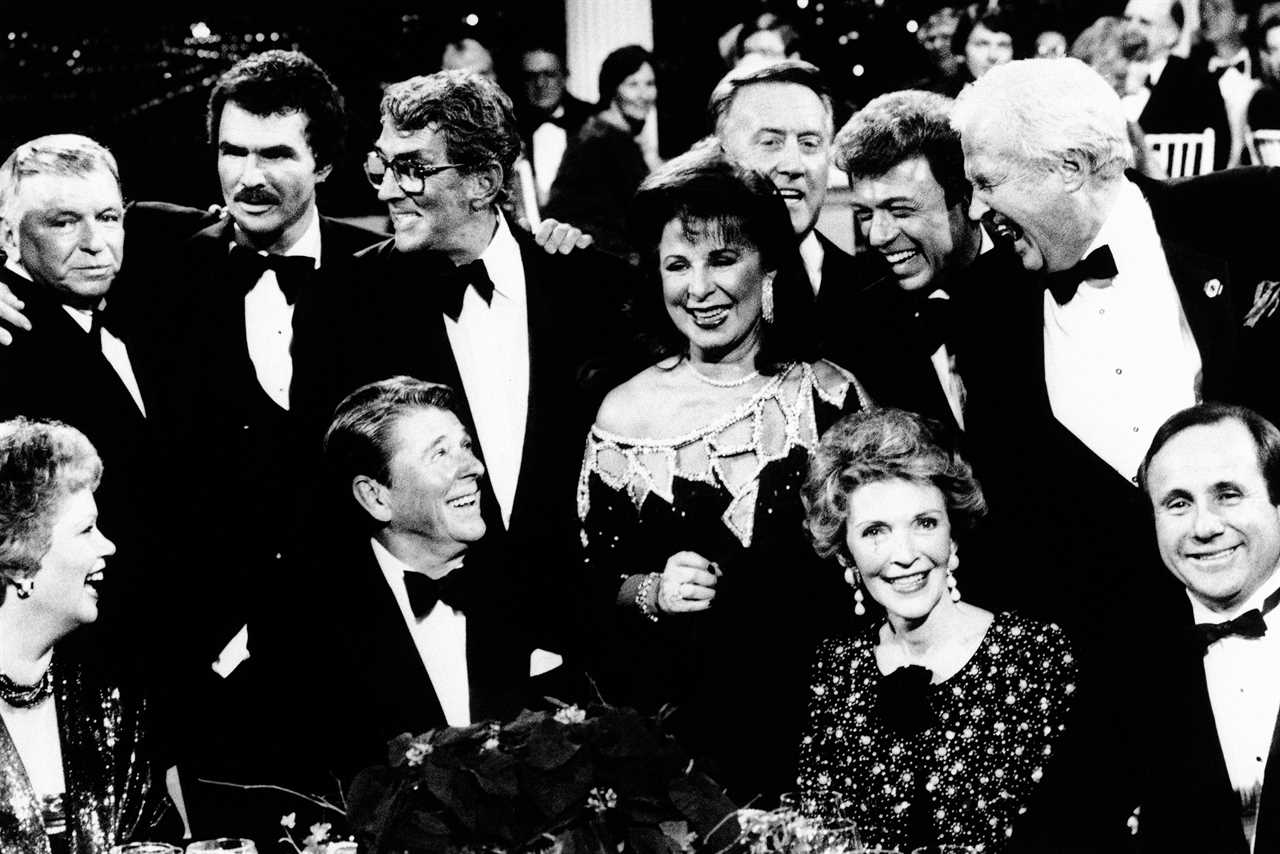
The crux of the document was encapsulated in point 32: “Bill [Best] expressed extreme concern about the danger of a former Hollywood actor in fact being the ‘Manchurian candidate’ and spoke at length on the nature of the Hollywood movie industry and the fact that an actor is in the hands and under the manipulation of studios, producers, directors, etc., and that he must carry out orders in order to survive. He felt that Reagan had been manipulated all of his life, and that he was essentially ‘in bondage’ to those around him.” Ronald Reagan as the ventriloquized pawn of shadowy and sinister forces — his “Kitchen Cabinet” of California millionaires, his wife Nancy, Nancy’s astrologers, the Mafia — has long been a motif in assessments of the 40th president, and what McCloskey’s contribution to the genre might have lacked in plausibility, it more than made up for with originality. Controlling Reagan in this scenario was a “network” of homosexuals who “shared an almost religious zeal against communism and [on] behalf of right-wing causes.”
McCloskey had to act fast. He was scheduled to depart with his girlfriend-cum-press-secretary on July 3 for a backpacking trip to Yellowstone National Park, where they would stay until the 12th, just two days before the start of the Republican convention. This left precious little time to avert a Manchurian Candidate-style catastrophe at the Joe Louis Arena. McCloskey sprang into action.

Taking his concerns to the FBI was a nonstarter. The bureau was overly bureaucratic, its reputation still tarnished by the legacy of J. Edgar Hoover’s abuses. This left McCloskey with only one option: He would play the role of Deep Throat. After midnight on July 3, he put a copy of his confidential memo and Bill Best’s 1976 statement into a manila folder, walked a few blocks to a home near Dupont Circle, and knocked on the door. Answering in his slippers and a bathrobe was Ben Bradlee, the editor of the Washington Post who had become legendary for his role in helping to bring down a previous Republican president. McCloskey quickly summarized the matter and handed him the documents. Intrigued, Bradlee said he would put his best reporters on the story and update McCloskey on their progress at the Republican convention.
At Post headquarters the next day, Bradlee assembled a group of journalists — assistant managing editor Bob Woodward and reporters Scott Armstrong, Lou Cannon, Ted Gup and Patrick Tyler — in his office. According to Armstrong, Bradlee spoke of the story related to him by McCloskey as if it had the potential to be what he was fond of calling a “holy shit” exclusive. “The brass ring is up there, boys,” Bradlee said, offering one of his favorite metaphors for a huge journalistic scoop. “We just got to reach up and grab it!”
As to the story’s newsworthiness, “the focus was that there could be a circle of people trying to control Reagan and there may be a commonality of gay-ness,” Tyler recalled. “We weren’t investigating whether there were gay people around [Reagan],” per se.
Bradlee was determined to find out more, and like every great newspaper editor, he was determined to beat the competition and find it out before anyone else. “He didn’t know where the story was in this, but he felt that there was a story in there and we better be the first to get it,” Tyler said.
Reinforcing Bradlee’s hunch, according to Armstrong, Gup and Tyler, was that Sen. Barry Goldwater also urged the Post to investigate the matter. Goldwater likely heard about it from his fellow Arizonan, Republican House Minority Leader John Jacob Rhodes, whom McCloskey had briefed. If true, Goldwater’s participation in a shambolic effort to stop Reagan’s nomination would have been yet another episode in a long-simmering rivalry dating back to his 1964 presidential defeat. Goldwater had taken it personally when Reagan, running for governor two years later and wary of being associated with a loser, rejected Goldwater’s offer to campaign for him. The decisive rift would not arrive until 1976, however, when Reagan, having spurned Goldwater’s aid 10 years earlier but now running for president on the back of a movement that had recast the 1964 rout as a heroic martyrdom, asked for Goldwater’s endorsement. Goldwater declined.
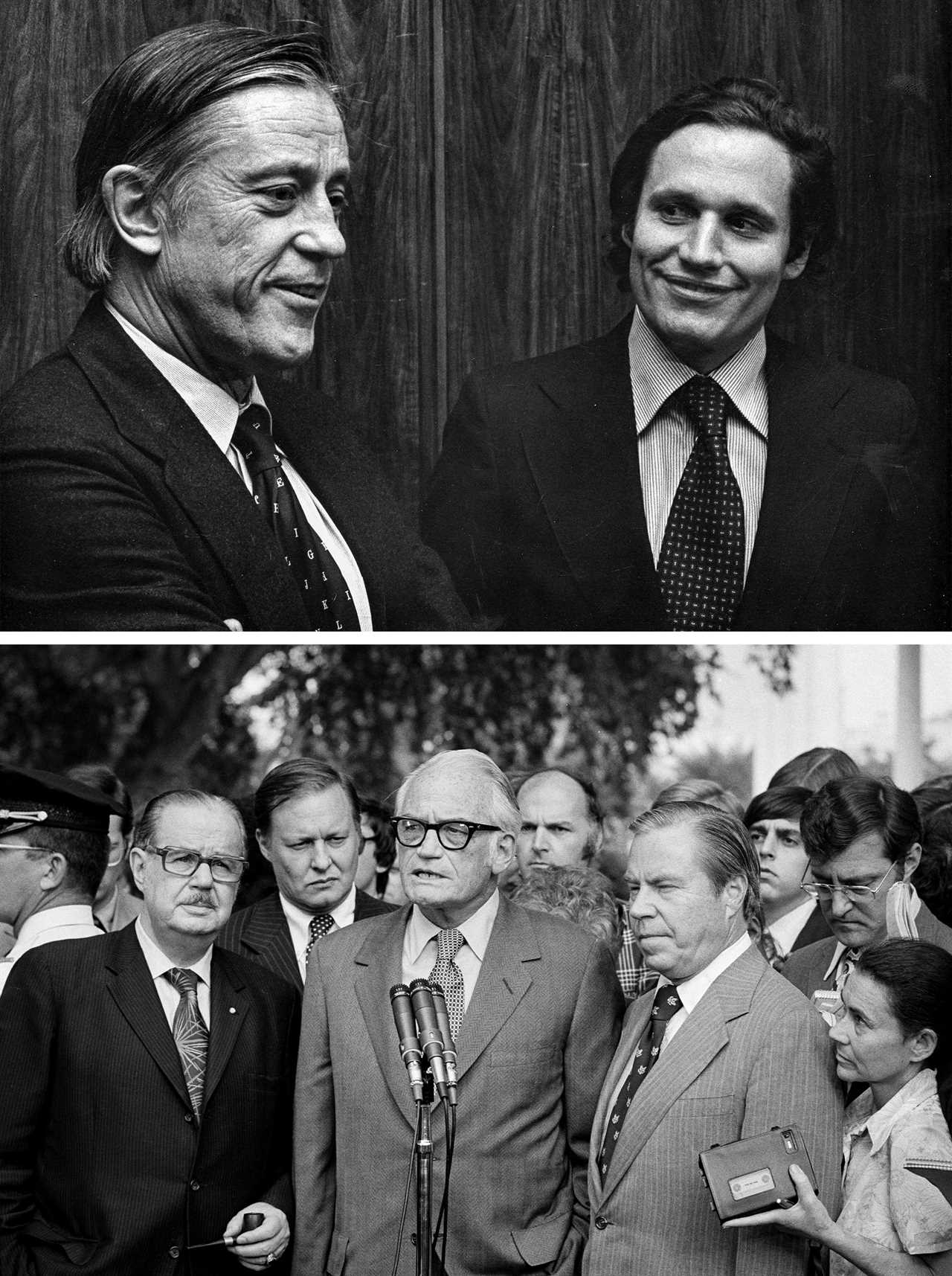
Bradlee had personal reasons for taking Goldwater’s judgment seriously. The Arizonan was an important source for the Post during Watergate, and Goldwater was a close family friend of his in-laws. When Bradlee and his wife, Sally Quinn, moved into a Georgetown mansion, it was “Goldy,” as Bradlee called him, who installed the hi-fi stereo sound system. Goldwater admiringly dubbed Bradlee’s paper the “Post-mortem,” because “if you manage to survive everything else in Washington, Bradlee and the Post will eventually get you.”
Now, at the instigation of a motley crew of Republicans from the party’s ideological poles, the Post was coming to get Ronald Reagan.

The team of reporters scrambled. Scott Armstrong traveled to Phoenix, where Bill Best was working as a reporter for a local news station. According to Armstrong’s notes of their conversation, Best said that his ordeal began in 1966, when, while running for a seat in the California State Assembly, he had dinner with a political consultant whose firm was running Reagan’s gubernatorial campaign. As he drove the inebriated consultant back to his car, Best said the man put his hand on Best’s leg. “He propositioned me,” Best told Armstrong. “He indicated to me that it would be very much in my interest to cooperate, and he indicated to me who else had benefited. It included a lot of people I knew, but I took it with a grain of salt. I was skeptical, but the implication was that [the political consultant’s] protégés slept with him and then became successful.”
Fast-forward nine years, to November 1975, and Best was visiting Washington in hopes of landing a job with Reagan’s presidential campaign. Best crashed at McCloskey’s house in Georgetown, and through the recommendation of Reagan aide Michael Deaver, who died in 2007, he set up a meeting with Deaver’s business partner and fellow Reagan adviser Peter Hannaford in his room at the Madison Hotel. The two depleted the minibar, and as Best got up to leave at around 1 a.m., according to Armstrong’s notes of Best’s retelling, Hannaford abruptly asked, “Are you ready to go to bed?”
“What?” Best replied.
“Are you ready to go to bed?”
“What are you talking about?”
“If you didn’t come over here to go to bed, why did you come over here?”
“To discuss a job with the campaign.”
“We did, so now it’s time to go to bed,” Hannaford, who died in 2015, allegedly replied.
Best said he fled the room, stumbling down five flights of stairs to his car and speeding back to McCloskey’s.
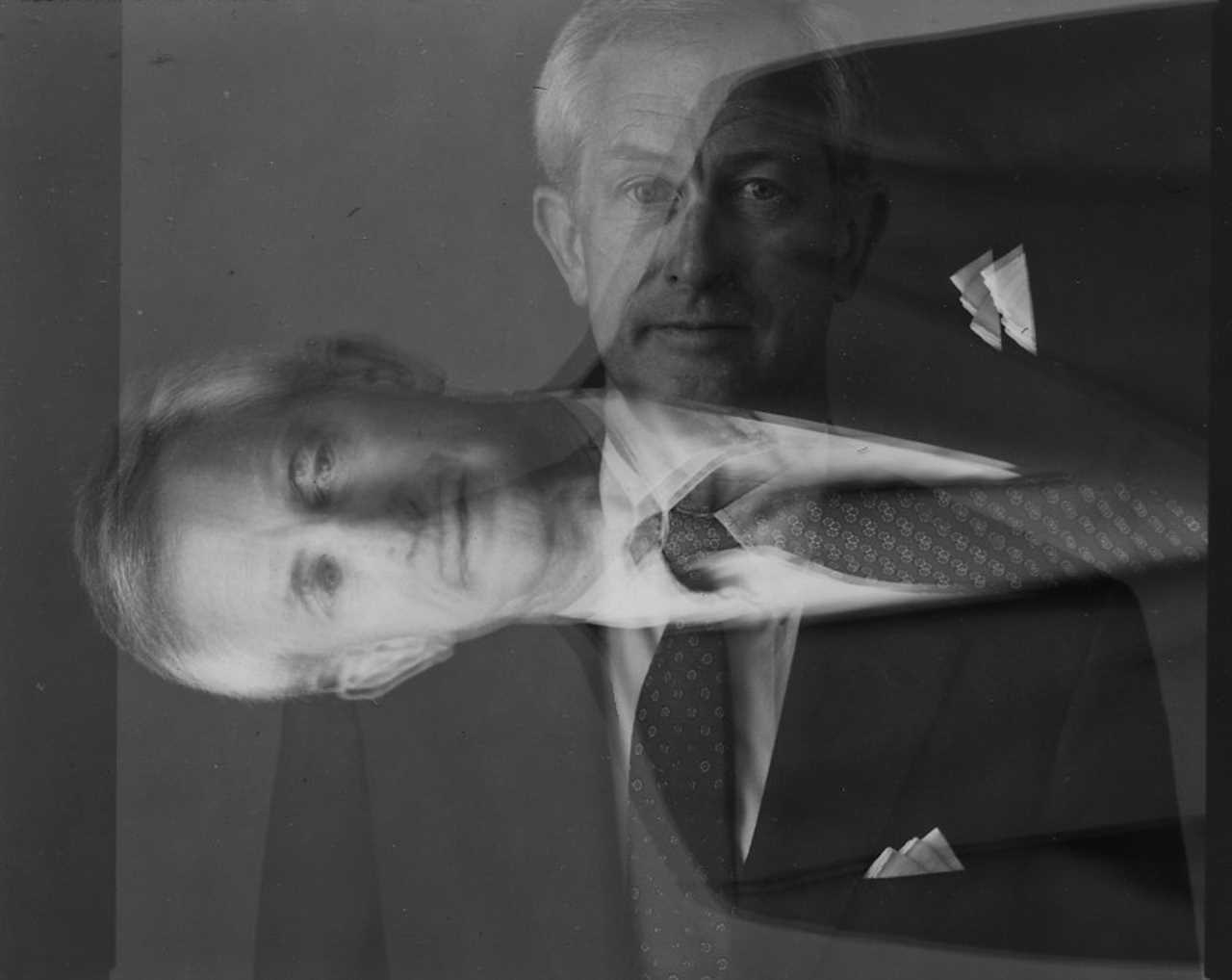
Best told Armstrong that he had informed a few other Republican activist types about these incidents and was confounded by their nonchalance. “Big deal,” he said was the reaction of Egil “Bud” Krogh, head of the Nixon Plumbers unit. “There were lots of gays in the Nixon administration too.”
At one point in the spring of 1980, Best said he confronted Deaver over lunch about Hannaford’s proposition. “It’s your partner and you ought to know,” Best told him.
“Who else knows?” Deaver asked.
“I told two groups,” Best said he replied. “Those I needed to talk to and those I needed to protect me.”
Deaver, Best said, evinced no reaction as he continued eating his lunch. “You could probably keep eating if I told you that World War III had started,” Best said he remarked, adding that Kemp as the VP pick would be a “giant mistake,” an assertion with which Deaver apparently agreed.
Best also told Armstrong about the man, a then 17-year-old volunteer on Reagan’s first gubernatorial campaign named William Seals Jr., who claimed to have had sex with Reagan. Best said Seals told him the encounter took place on the night of Reagan’s first inauguration in Sacramento. Reagan, wearing nothing but a bathrobe, had invited Seals into his hotel suite. “If Reagan is elected president,” Best said Seals boasted to him, “I could be first lady.” Seals further asserted that he had participated in the alleged Lake Tahoe orgy and had “gone to bed” with Kemp. Despite his best efforts, Armstrong was unable to track down this elusive figure, and Best and Seals have both since passed away.
The essence of Best’s allegations, Armstrong wrote in a memo to his colleagues, was that submission to the sexual demands of an influential circle of gay men was “the sine qua non of success in the Reagan organization.” Best, he wrote, was “sane, sober, careful and restrained,” not “flaky or kooky.” In appearance, he was “sort of Calif. Preppy (Woodward as beachboy)” and “probably jail bait when he was in his early 20s.” But Best also struck Armstrong “as a man who has seen a flying saucer on two separate occasions and can’t get anyone to believe him,” which left the reporter with the feeling that the story lacked legs.
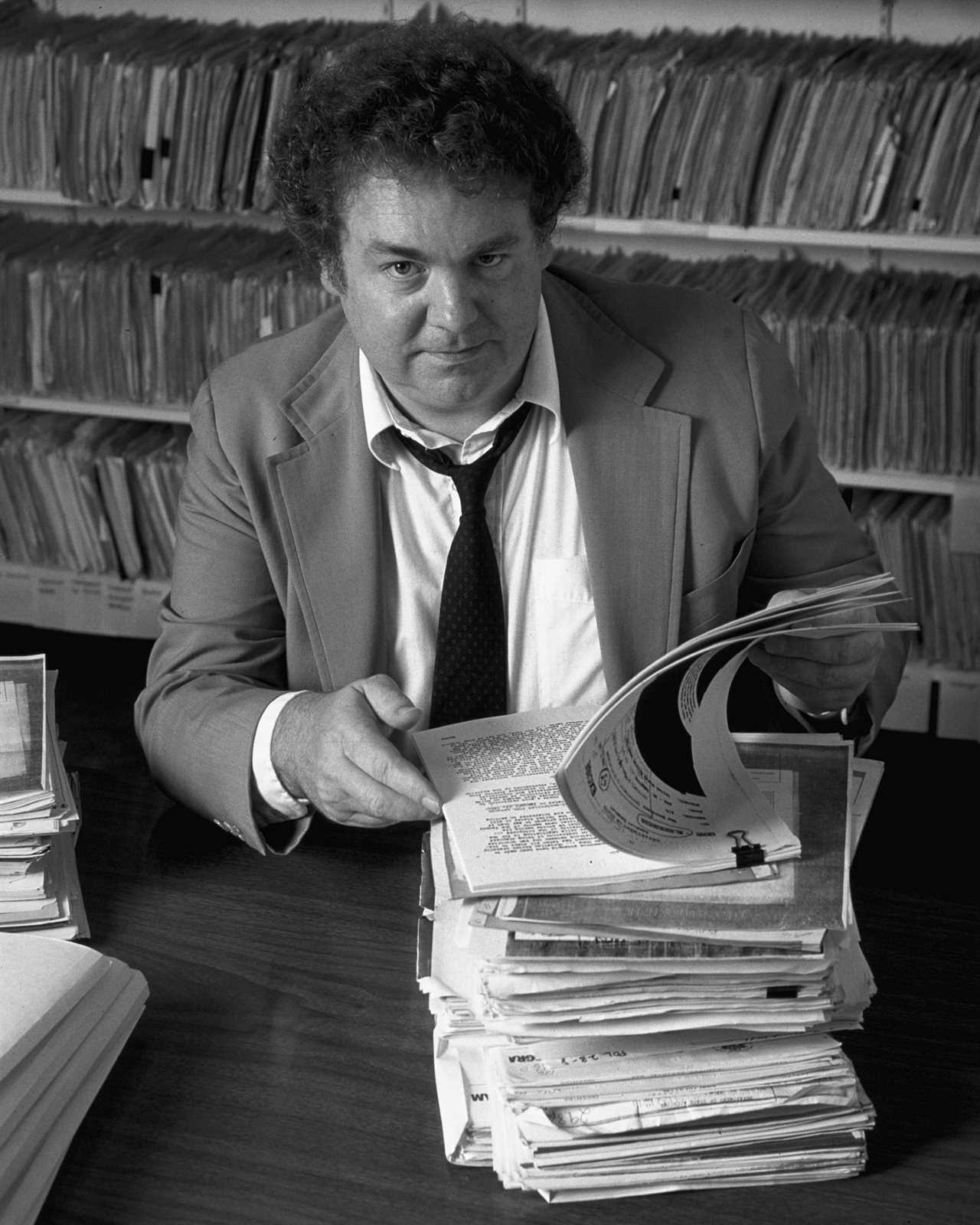
“Count me out until someone on this list [of alleged homosexuals] is actually serving in a presidential administration with access to national security information or until a more current pattern of some group is evident,” Armstrong concluded.
Reporter Ted Gup tracked down Bouchey in a depressed suburb outside Dallas, where the think tank director was with his wife and children visiting his father-in-law at his mobile home. Bouchey was “shocked” that a Post reporter would come all the way to interview him, Gup later wrote in a memo, but he agreed to speak outside, in the 112-degree heat, away from his family. As Bouchey described the events of June 25 and 26, he reenacted for Gup the moment that sent Livingston fleeing to the basement of the Rayburn Building, grabbing Gup’s “knee and thigh firmly” in a “quick unexpected action.” (“His hands were strong,” Gup recounted. “I thought, ‘My God, if he grabbed Livingston that way, no wonder the guy spent the night in the gym.’”) As for ordering “hits,” Bouchey unreservedly denied that “any of his contacts were terrorists or violent,” and he expressed bewilderment that Livingston had felt fearful for his safety. He was less surprised, however, about the suggested existence of a “gay network” surrounding Reagan.
“He didn’t laugh at the idea,” Gup wrote. “He took it seriously. He did not question the legitimacy of a reporter inquiring into it.”
Bob Woodward interviewed Livingston, whom McCloskey had apparently not bothered to consult before relating their conversations to the Post. “I’m petrified and paranoid about this,” Livingston said, according to notes taken by Woodward, who wrote that there was “lots of pushing necessary to get him to talk.” Woodward repeatedly declined to speak with me about these events.
According to Woodward’s notes, Livingston disputed McCloskey’s characterization of his early morning phone call from the House gym, specifically that he told McCloskey that Bouchey had alluded to assassinations. “McCloskey’s imagination went wild,” Livingston said. That grumble aside, Livingston was concerned about the hidden gay network, which he even suggested to Woodward could possibly be tied to the office of Sen. Jesse Helms, the viciously anti-gay North Carolina Republican and conservative ally of the Reagan campaign. Livingston told Woodward it would take “months to do this story right” but he hoped the Post would pursue it because “I don’t want to see the world run by a bunch of weirdos.” While Livingston allowed for the possibility that what he took as a sexual advance on the part of Bouchey might have been a mere drunken misunderstanding, “I would never base a story on just what happened to me. If you guys ever prove it, it will be world-shaking.”

A few days before the Republican convention in Detroit, the Post team regrouped in Washington. Undoubtedly, gay men had played prominent roles in Reagan’s political career. But with the important possible exception of Peter Hannaford, none were expected to hold a job in a potential Reagan administration that would require a security clearance.
As a rule, Bradlee was hesitant to report on the private lives of public officials unless it had a tangible, direct impact on their work. In 1976, explaining his decision to spike a Jack Anderson column divulging details of congressional adultery, Bradlee wrote, “Public persons’ private lives tend to be their own business unless their personal conduct is alleged to violate the law or interfere with performance of the public job.” Just a few months before McCloskey showed up on his doorstep, he had been approached by another congressman, Democrat William Moorhead of Pittsburgh, whose escapades with a transgender prostitute the Post was investigating. A rattled Moorhead “went to Bradlee and pleaded with him not to print the story,” a journalist working at the Post recalled. “Bradlee suppressed it, saying, rightly, that a man’s private sexual entanglements were his own affair.”
While gay sex might still have been illegal in most American states at the time, and gay people officially remained “security risks,” it was hard to see how any of the alleged activity involving the Reagan aides threatened the public trust. “In the end, I can’t remember anyone postulating a lede that made sense of this,” remembered Patrick Tyler. There was smoke but no fire, as Bradlee would tell McCloskey when he saw him at the Republican convention.
The rumors about Jack Kemp, however, persisted. On the first day of the convention, Reagan’s longtime communications man Lyn Nofziger told Robert Novak that the New York congressman was a strong contender for the veep nomination. After Reagan selected George Bush, Novak asked Nofziger what had dashed Kemp’s chances. “It was that homosexual thing,” Nofziger conceded, repeating Kemp adviser Jude Wanniski’s phrase. “The governor finally said, ‘We just can’t do this to Jack.’”
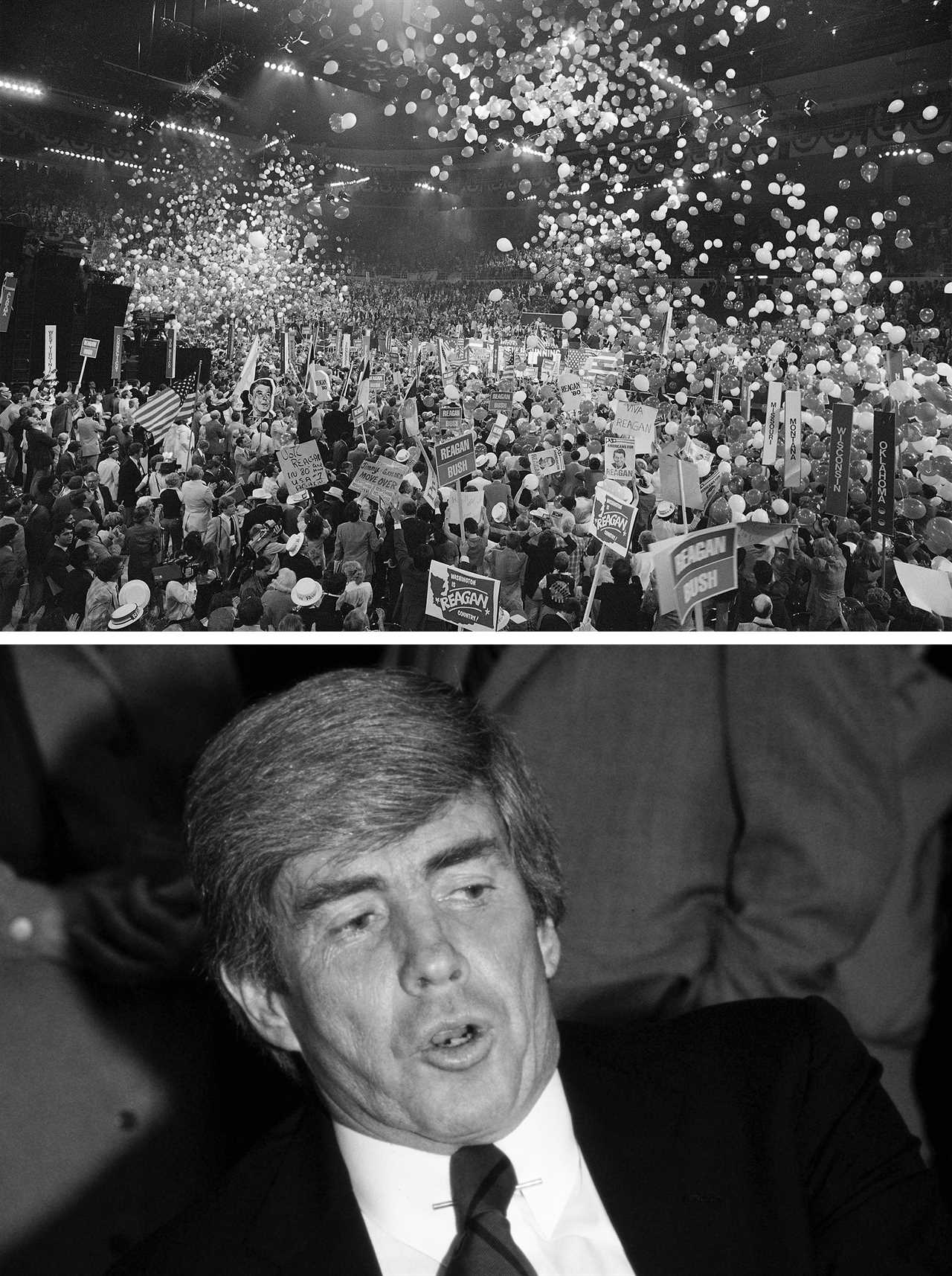
McCloskey remained unfazed. By September, the maverick congressman was still withholding his endorsement. The presence of a closeted homosexual, Peter Hannaford, in a potential Reagan administration could pose a threat to national security, McCloskey believed, and so he took his concerns directly to Reagan’s longtime adviser and campaign chief of staff, Ed Meese.
“United States cryptographers and British scientists have defected to the Soviet Union, reportedly in part because of the threat of exposure of homosexual conduct,” McCloskey wrote Meese. “With the growing numbers and political involvement of the homosexual communities across the nation,” a development McCloskey welcomed, “it would be my judgment that there will be very few secrets about who has and who has not engaged in homosexual conduct.”
McCloskey suggested that Meese ask “any persons against whom reputable citizens have raised contentions of homosexual conduct to step aside from positions of responsibility in the Reagan team at the earliest possible date. I make this suggestion solely in the interest of trying to give Governor Reagan the best possible chance of being the kind of President the country desperately needs at this time.”
On Sept. 4, Meese met with McCloskey at the congressman’s Capitol Hill office. In a letter to Best recapitulating their hourlong conversation, McCloskey wrote that while Meese “accepted Pete Hannaford’s absolute denial of your allegations … he does not expect to allow Hannaford to be in a job which would embarrass the Governor if others come forward to raise the issue.” Meese, interviewed in 2020, disputed this account. While he did not “specifically” recall the meeting with McCloskey, “the implication that Pete [Hannaford] had anything to do with homosexuality is absolutely false, and the reason, if I said [he was not joining the administration] at the time was that there was no point in going into it because Pete wasn’t going into the administration anyway.”
Whatever the nature of their discussion, McCloskey endorsed Reagan two weeks later, sealing the deal by letting the candidate slap a “Reagan/Bush” bumper sticker on his beat-up 1971 Volkswagen convertible.
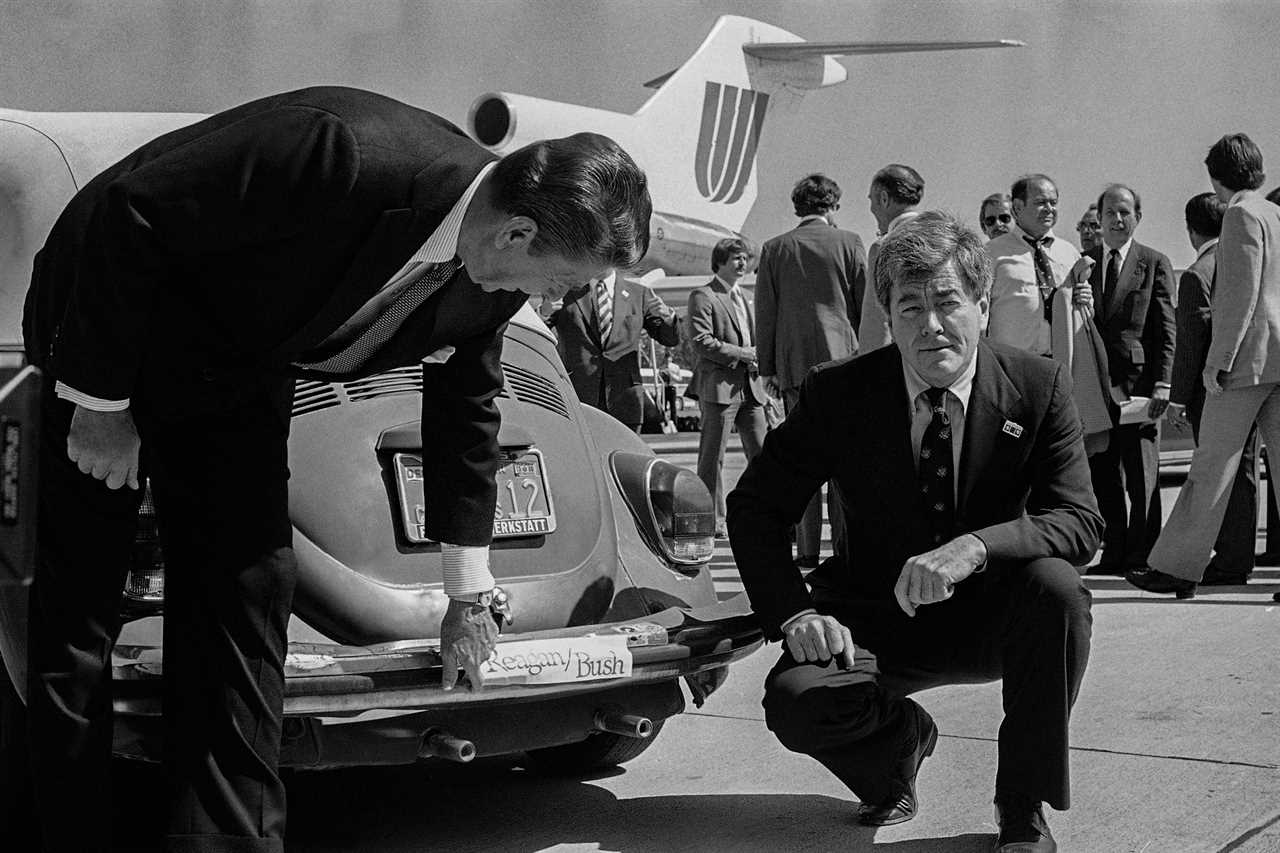
And as Meese promised, Hannaford did not join the Reagan administration.

The passage of time validated the Post team’s intuition that the instigators of this wild goose chase might not have been the most credible sources. According to McCloskey, Best came to regret the role he played in denying Hannaford a job in the White House, phoning McCloskey at one point in the mid-1980s to complain that the Reagan administration was “going to hell in a handbasket” and that “the worst thing I ever did was get rid of Hannaford. He was the smartest guy of all. Nancy’s running it with an astrologer in San Francisco,” a reference to Joan Quigley, the oracle whom the first lady began consulting after the 1981 assassination attempt on her husband.
McCloskey gave up his House seat in 1982 to run for the Senate, losing in the Republican primary after campaigning against “the Jewish lobby.” In 2000, he emerged briefly from obscurity to deliver a speech at a Holocaust denial conference. In light of this record, his last-ditch effort to torpedo Ronald Reagan with a tale portraying him as the dupe of a right-wing homosexual conspiracy looks like just another episode in a career spent tilting at windmills — his unlikely friend John Ehrlichman described him as “a latter-day Don Quixote” — though one much less honorable than challenging Richard Nixon for the presidency.
Had the whole farrago of rumor and innuendo about the gay Reaganite conspiracy come to light during the campaign, it’s difficult to say what effect it would have had on the election. Of all the voters most likely to be troubled by such charges, it would have been the evangelical Christians whose support Reagan was courting so assiduously. Reagan’s eventual 10-point victory over Carter obscures how close the race was during the final stretch. In June, just as the Post investigation was about to unfold, Carter led Reagan 35 percent to 33 percent in a national Gallup poll, and few predicted anything near the landslide Reagan ultimately won.
Over four decades later, the plot to out Reagan vividly demonstrates the extent to which the specter of homosexuality cast a pall over American politics. Livingston’s fellow Louisianan, the comically corrupt Gov. Edwin Edwards, might have been joking with his infamous quip that the only way he could lose an election “is if I’m caught in bed with a dead girl or a live boy.” But he was also telling an important truth. For as difficult as it might be to imagine today, when an openly gay man can mount a serious campaign for the presidency and gay people have never been more visible in American public life, there was only one offense that rivaled murdering a member of the opposite sex, and that was loving a member of the same one.
----------------------------------------
By: James Kirchick
Title: The Plot to Out Ronald Reagan
Sourced From: www.politico.com/news/magazine/2022/05/27/gay-history-paranoia-conspiracy-reagan-kirchick-excerpt-00035193
Published Date: Fri, 27 May 2022 03:30:00 EST
Did you miss our previous article...
https://consumernewsnetwork.com/politics-us/time-is-ticking-to-replace-the-pentagons-1970sera-doomsday-planes






